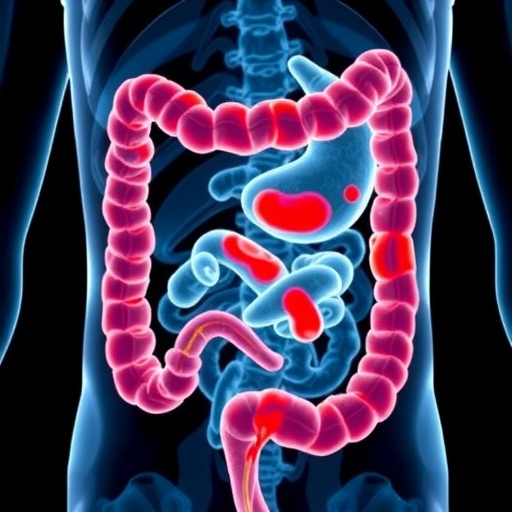A recent study presented at the American College of Surgeons (ACS) Clinical Congress 2025 in Chicago reveals a striking association between rectal bleeding and early-onset colorectal cancer in patients under 50 years of age. This research highlights a critical symptom that substantially increases the odds of a cancer diagnosis in a population segment traditionally considered at lower risk and not routinely screened. The findings could revolutionize current diagnostic approaches, prompting earlier intervention and potentially saving countless lives.
Colorectal cancer, historically viewed as predominantly affecting older adults, is witnessing an alarming rise among younger individuals, specifically those below the age of 50. This trend has intensified concerns about missed or delayed diagnoses, partly because routine screening programs typically commence at age 45 or older, and many younger patients lack a family history of the disease. The study in question set out to analyze which clinical presentations might serve as robust indicators for cancer risk in this younger demographic.
The retrospective analysis evaluated 443 patients under the age of 50 who underwent colonoscopy between 2021 and 2023 at the University of Louisville Health System. Remarkably, 195 patients, representing 44% of the cohort, were diagnosed with early-onset colorectal cancer. The remaining 248 patients had normal colonoscopy results. This substantial sample size emphasizes the pressing need to identify predictive factors that can guide clinicians in deciding when to recommend invasive diagnostic procedures.
Among several clinical features scrutinized, rectal bleeding emerged as the most potent predictor of colorectal cancer in younger adults, enhancing the likelihood of a cancer diagnosis by 8.5 times. This finding underscores the necessity for healthcare providers to not dismiss this symptom as benign or related to less serious conditions, especially in patients who may not yet qualify for routine colorectal cancer screening based on age alone.
Additionally, the study found that family history, often a cornerstone in assessing cancer risk, plays a surprisingly limited role in the early-onset colorectal cancer population. Only 30% of young patients diagnosed with colorectal cancer reported a family history of the disease, and genetic markers associated with hereditary syndromes were present in a mere 13% of cases. These insights challenge conventional reliance on genetic predisposition as a sole criterion for early screening and highlight the complexity of cancer etiology in younger individuals.
Lifestyle factors also featured prominently in the analysis. Former smoking emerged as a significant risk factor, with patients diagnosed with early-onset colorectal cancer nearly twice as likely to have a history of tobacco use compared to their non-cancer counterparts. This correlation aligns with established carcinogenic pathways linked to smoking, such as chronic inflammation and DNA damage, which may accelerate tumorigenesis even at a younger age.
The overwhelming majority—88%—of early-onset colorectal cancer patients underwent colonoscopies prompted by symptoms rather than routine screening. This trend reflects the current clinical reality that younger patients often seek medical attention only after symptom onset, frequently resulting in diagnosis at more advanced stages. The study’s findings advocate for heightened clinical vigilance regarding symptom-driven presentations in young adults, especially rectal bleeding.
Understanding when to recommend a colonoscopy in symptomatic young adults presents a clinical conundrum. As Dr. Sandra Kavalukas, lead author and colorectal surgeon, explains, not all rectal or anal complaints warrant invasive diagnostics. However, the pronounced association between rectal bleeding and cancer risk necessitates a paradigm shift, urging clinicians to prioritize colonoscopy for patients under screening age but presenting with this critical symptom.
The implications extend beyond individual clinical decisions. With rising rates of early-onset colorectal cancer documented globally, healthcare policy must evolve to integrate symptom-based guidelines that complement age-based screening criteria. This approach could bridge the gap for young patients who otherwise fall outside established screening protocols but who carry a notable risk based on symptomatology and lifestyle factors.
Moreover, the study addresses the barriers posed by insurance coverage policies that often exclude diagnostic colonoscopies for symptomatic young adults due to their age. By providing robust evidence, this research aims to guide policy reforms ensuring that coverage aligns with clinical necessity, thereby facilitating timely diagnostic interventions and improving outcomes.
Looking forward, the research team at the University of Louisville is expanding their efforts to develop a comprehensive risk score calculator. This tool would synthesize clinical symptoms, lifestyle factors, and genetic markers to stratify colorectal cancer risk in young patients more precisely, empowering physicians to tailor diagnostic strategies effectively and personalize patient care.
This groundbreaking study emerges at a pivotal moment in oncology and preventive medicine, demanding renewed attention to colorectal cancer in younger populations. As screening paradigms shift and awareness increases, integrating such scientific insights into clinical practice can substantially attenuate the burden of this aggressive disease.
In summary, rectal bleeding in adults below age 50 should be regarded as a red flag warranting prompt diagnostic colonoscopy due to its strong correlation with early-onset colorectal cancer. The limited role of family history and elevated influence of modifiable lifestyle risks such as smoking further complicate risk assessment, but also offer avenues for prevention and tailored clinical intervention. This research not only challenges existing screening thresholds but also provides a crucial framework for symptom-driven evaluation that could change the landscape of colorectal cancer diagnosis in younger patients.
Subject of Research: Early-onset colorectal cancer risk factors and clinical indicators in patients under 50
Article Title: Rectal Bleeding as a Dominant Predictor of Early-Onset Colorectal Cancer: Analysis and Implications from a Retrospective Study
News Publication Date: 2024
Web References: https://www.facs.org/for-medical-professionals/conferences-and-meetings/clinical-congress-2025/
Keywords: Colorectal cancer, early-onset colorectal cancer, rectal bleeding, colonoscopy, cancer risk, cancer screening, cancer diagnosis, young adults, oncology, cancer research, lifestyle risk factors, hereditary syndromes
Tags: American College of Surgeons study 2025clinical indicators for cancer diagnosiscolonoscopy findings in young patientscolorectal cancer diagnosis in under 50searly-onset colorectal cancer in young adultsimportance of rectal bleeding as a symptomincreasing colorectal cancer rates in youthrectal bleeding and colorectal cancer riskretrospective analysis of colorectal cancer patientsrisk factors for colorectal cancer in young adultsscreening recommendations for colorectal cancertrends in colorectal cancer among younger individuals





